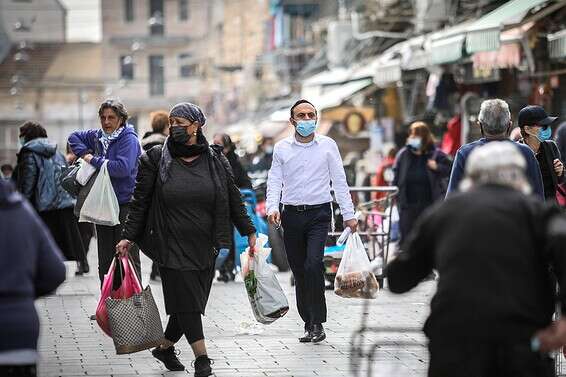
According to the data, in the first wave (March-May) the average age was 81; In the second wave (June-October) the average age was 79; And in the third wave (November-January) the average age was 77.
Corona Commissioner Prof. Ash: “This may not be the last closure” // Photo: GPO
It should be noted that another study, conducted at Clalit Health Services several months ago, found that 44 percent of patients who died from corona had an expected life expectancy of five years or more. Only a negligible percentage of the patients who died had an expected life expectancy of half a year or less. Now that it has become clear that the average age of the dead in the third wave has dropped by about three years, it can be assumed that the loss of life years following the plague is even greater than initially estimated.

Nearly 200 people have died from corona just since the beginning of the week, and the number of deaths from corona in January is the highest since the outbreak of corona, standing at 1,161 last night – an average of 43 deaths each day.
The entrance from Jordan will be closed
Against the background of the peak in death rates, the government secretariat last night could not say with certainty whether the government would convene today to discuss extending the third closure. The reason: the lack of agreements between the Likud and the blue and white chairman, Bnei Gantz, who claimed last night that there was no point in extending the closure because it was not enforced.
“We are in favor of stopping playing games, if there is a closure there will be a closure,” Ganz tweeted. “This pun must stop, so we demanded equal enforcement. If we have to close – then we close in Bnei Brak, Herzliya, Savyon and Nahariya. If there is a closure then there is a closure, but if it is not enforced and does not exist – there is nothing to maintain it.”
On the other hand, Prime Minister Netanyahu is convinced that the closure should be extended. During a visit to Sderot, he said that he would enter the government and pass the Ministry of Health’s proposal to the government to extend the closure. “We will decide according to the level of morbidity,” Netanyahu said, “we will extend the sealing of our borders. We are the first in the world to close the borders and not allow any commercial flights to enter the State of Israel.

Although no blue-and-white agreement was reached, sources close to Netanyahu estimated that the government would indeed convene – and that there would be no escape from extending the closure for a week. “The closure is expected to end on Sunday night. It is not possible for the entire country to wait until the last minute with its extension, which is committed to reality, just because Bnei Gantz does not agree to convene the government,” a source close to Netanyahu said.
During his visit to Sderot, Health Minister Edelstein emphasized that “getting out of quarantine in this situation is really lawlessness. We must continue the restraining measures to allow the reduction in morbidity.”
However, the health minister clarified: “There is good news – the coefficient of infection is declining. Now a joint effort is needed to stop populism and demagoguery and continue to fight the disease in both tracks: vaccination and restraint.”
There is no compromise on fines
Meanwhile, the Knesset plenum last night approved the regulations to extend the closure until next Sunday at midnight. The extension was approved with the support of 34 MKs from the coalition factions against 7 MKs from White Brush and the joint list.
The Ministry of Justice and Legal Advice in the Knesset supported the proposal, claiming it was proportionate and appropriate – but then blue-and-white chairman Gantz insisted, demanding that the law be passed as written and worded without any change. Support the extension of the closure by one week.
Ariel Kahana, Gideon Alon and Lilach Shoval participated in the preparation of the article